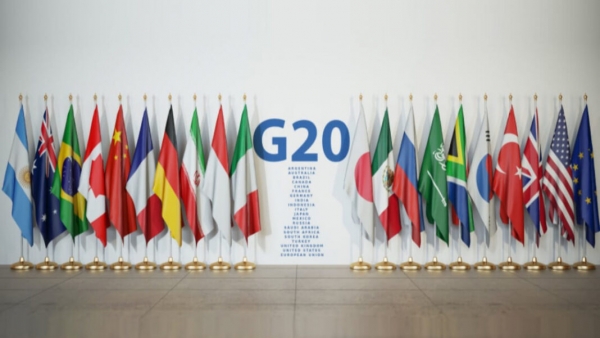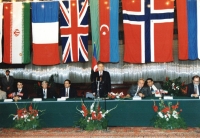In today’s era when economy coupled with its environmental constituent is frequently sacrificed for political ambitions or simply kept to the background, small and medium business interests are ignored completely. However, it is this class which is electoral, economically and socially active, and forms the basis of GDP almost in all developed economies. Churchill’s well-known “diversification, diversification and once again diversification…” statement is the very same principle which contributed into the development of Great Britain’s services sector constituting ¾ GDP in the island economy, as well as that of industry (18.6% of GDP) and agricultural sector ensuring 2/3 of food supply to the UK population. Today it is the 10th economy of the world in terms of the GDP at purchasing power parity for 2018.
The country is importing 6 times as much industrial goods as raw materials. The USA is the biggest exporter into the UK. 7 out of 10 leading suppliers of goods into Great Britain are the EU states. It is the latter with whom the businesses will have to establish quite new relations because of Brexit, introduce real financial control levers, starting from floating interest rates right up to creation of quite unprecedented incentives for small and medium business development, and special funds enabling to compensate possible losses of business.
Therefore, never raised at the G20 and G7 summits was the issue of mitigating the Brexit or no-deal Brexit effects on the world economy, or this matter simply stayed out of sight of the World Media. Besides, the consequences of a possible rejection of a backstop with Northern Ireland (whereby this border will remain the only open and transparent “door” into the EU for the whole UK) require its maintaining or a clear extraordinary plan going beyond the limits of Brexit, which can cost much.
Issues of energy security, development of new spot markets and short-term deals, consolidation in the fight against climate change and development of incentives for small and medium-sized businesses, of course, require a more active stance and close attention. How assessed are the risks of the British and other oil companies which in one way or another are engaged in the upstream development projects in the Caspian Sea. The situation remains far from optimistic and the British Prime Minister Boris Johnson’s decision to suspend the parliament till October 14 marks an escalation of hostile actions, Bloomberg reports. His manner of negotiation with the European leaders, characterized “by the feet on the table” rather reminds the long-forgotten “Khrushchev’s boot” at the UN General Assembly in the midst of the Caribbean crisis and his famous “Pokazhem vsem Kuzkinu mat!” which meaning linguists are still trying to find out.
In this regard, the House of Lords of Great Britain pushes on the Premier and still leaves him an opportunity to exit the EU without a deal. The draft of the law approved by the parliamentarians, in particular, implies that the British government shall try to reach a new agreement with the EU at the European Council’s meeting on October 18. Apart from this, till October 18 it has a right to submit a request to the parliament about possible no-deal brexiting. This item implies that tough Brexit will be possible only with the approval of legislators. If none of these conditions is fulfilled, the Prime Minister of the United Kingdom will have to request the Brussels to extend the operation of the 50th article of the Lisbon treaty till January 31, 2020.
In reality, it does not make a big difference whether it is going to be an agreed or no-deal Brexit. The factor of unpredictability, Einstein’s chaos control theory, will certainly make the government to control the economy manually and in such case “a man can for sure die but once”.
More so that the present Premier has repeatedly stated that he will anyway make the Brexit happen.
Apparently, the British Minister of Finance will have to prepare a solid and long-term “insurance pad” and the treasury will have to pay compensation to business for possible loss of trade preferences with the EU for a certain period. It is also conceivable that a trade war between the United States, the EU and China will help Brexit, since the territory of Ireland does not fall under the strict tariffs imposed on US goods by the EU and China, and American companies could move their headquarters to Ireland.
Still, another meeting of the Knights of the Round Table, this time in G7 format, on August 26 in Biarritz, was constructive, attended by the US President Donald Trump. The parties managed to sign a final communiqué, reduce tension on the Iranian issues and inject hope into the solution of the Ukrainian crisis in the “Normandy Four” format. It is noteworthy that in Biarritz Donald Trump insisted on Russia’s return to G-8 as soon as possible, without delay. The Italian Prime Minister Giuseppe Conte was the only one who actively supported him.
In regard to the Ukrainian problem the G7’s summary statement says that “France and Germany will arrange a summit in the “Normandy format” in coming weeks in order to achieve concrete results”. The meeting can also be credited with Donald Trump’s statement about the American-British trade agreement – the most scalable in history – soon to be signed with the “fantastic Prime Minister” Boris Johnson. The American leader did not attend the plenary session dedicated to the climate, stating that he had meetings with the German Chancellor Angela Merkel and the Indian Prime Minister Narendra Modi. Though, journalists found both Merkel and Modi sitting at the table of the “climate session” at that time.
Trade issues have been included into the first paragraph of the outcome document of G7. The leaders of the member states called for the reformation of the WTO. Moreover, politicians stressed the necessity of drawing up the agreement in order to have the international taxation system modernized within the framework of the Organization Economic Cooperation and Development (OECD) in 2020. “G7 adheres to open and fair world trade and stable global economy. G7 asks Finance Ministers to monitor the situation in the global economy. For this reason G7 wants to make deep changes in WTO in order to make it more effective in terms of protection of intellectual property, and to settle disagreements faster and prevent unfair practices”, says the statement quoted by the press service of the Elysian palace.
“G7 is committed to reach the agreement in 2020 in order to ease regulatory barriers and modernize the international taxation in the frame of the OECD”.
G20 leaders also stated about the necessity of the WTO reformation during the Osaka meeting held June 2019.
The G20 leaders confirmed their aspiration towards free and fair trade, expressed the need for WTO reform, says the declaration passed at the end of their meeting in the Japanese city of Osaka. “We strive to achieve free, fair, undiscriminated, transparent, predictable and stable trade and conditions for investments, and to keep markets open”, says the declaration.
An agreement worth $7billion and signed between Japan and the USA has also been an achievement of the G7 meeting. It implies import of agricultural products from the USA. Perhaps, it was the only practical agreement which had become a real outcome of this summit.
As a follow-up of the summit meeting, Minister of Foreign Affairs of India Subrahmanyam Jaishankar made a statement while addressing the “Valdai” Discussion Club.
He stated: “We understand that the US influence is changing in the world today. This country used to think that it could dominate everywhere while such opportunities exist no longer now. The USA admits it itself. A large number of players, influencing the international policy and one another, is emerging”, TASS reports the words of the Indian minister.
The Indian Minister of External Affairs also noted that loss of influence by one state and one civilization in the context of globalization is evident, while strengthening of the “G20’ status in contrast to “G7” is an ample evidence of it: “We came to a point when G7 is replaced by G20 which is now the most important international club. The G20 format shows that understanding of the world has changed...”
Indeed, the latest G7 and G20 proceedings with almost the same agendas have shown that neither formats nor the political but rather the economic – trade and investment components are the basis of all today’s globalization processes, which was mentioned marginally almost by all world leaders. As one of the meeting participants told Media, since the small and medium business, private sector, innovations and technologies are the backbone of all the economies of the developed countries today, the issue of creating such industry-specific formats for business meetings was raised in the course of the sessions. This, in turn, will promote the growth of and stimulate the world trade, while the system of taxation, standards and rules offered by business within the framework of WTO may turn out more effective and efficient by the next Summit in 2020.










